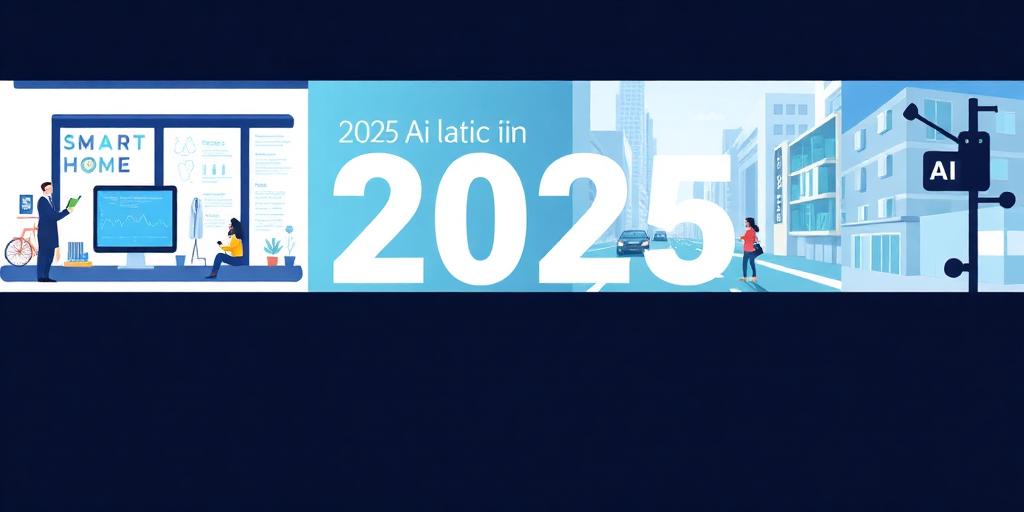How AI is Shaping Everyday Lifestyles in 2025
Artificial intelligence (AI) is no longer a futuristic concept; it’s rapidly becoming an integral part of our daily routines. By 2025, its influence will be even more profound, transforming how we live, work, and interact with the world. This article explores the key areas where AI will significantly impact everyday lifestyles.
1. Smart Homes and Personalized Living
AI-powered smart homes will be ubiquitous. Imagine a home that anticipates your needs, adjusts lighting and temperature based on your preferences, and manages energy consumption to maximize efficiency. AI algorithms will analyze your habits and automate tasks, creating a seamless and personalized living environment.
- Smart Appliances: Refrigerators that suggest recipes based on available ingredients and automatically order groceries. Ovens that adjust cooking times based on real-time feedback.
- Home Security: Advanced surveillance systems with facial recognition and anomaly detection capabilities to enhance security.
- Personalized Entertainment: AI-driven entertainment systems that curate content based on your viewing history and preferences.
2. Healthcare Revolution
AI is set to revolutionize healthcare, making it more accessible, efficient, and personalized. From diagnosis to treatment, AI will play a critical role in improving patient outcomes.
- AI-Powered Diagnostics: AI algorithms can analyze medical images (X-rays, MRIs) to detect diseases earlier and more accurately than human doctors.
- Personalized Medicine: AI can analyze an individual’s genetic makeup to tailor treatments to their specific needs, maximizing effectiveness and minimizing side effects.
- Virtual Health Assistants: AI-powered chatbots that provide 24/7 medical advice, schedule appointments, and monitor patients’ health remotely.
3. Enhanced Transportation and Mobility
AI will transform how we move from place to place, making transportation safer, more efficient, and more convenient.
- Self-Driving Cars: Autonomous vehicles will become more prevalent, reducing traffic accidents and freeing up commuters’ time.
- Smart Traffic Management: AI algorithms will optimize traffic flow in real-time, reducing congestion and improving commute times.
- Personalized Commute Planning: AI-powered apps that analyze traffic patterns, weather conditions, and your schedule to recommend the best route and mode of transportation.
4. Education and Learning
AI will personalize education, catering to individual learning styles and paces. It will make education more accessible and engaging for students of all ages.
- AI Tutors: Intelligent tutoring systems that provide personalized feedback and guidance to students, helping them master new concepts.
- Adaptive Learning Platforms: AI-powered platforms that adjust the difficulty of the material based on a student’s performance.
- Automated Grading: AI algorithms can automate the grading of essays and other assignments, freeing up teachers’ time to focus on instruction.
5. The Future of Work
AI will automate many routine tasks, freeing up humans to focus on more creative and strategic work. It will also create new job opportunities in fields such as AI development, data science, and robotics.
- AI-Powered Assistants: Virtual assistants that can handle scheduling, email management, and other administrative tasks.
- Automation of Repetitive Tasks: AI-powered robots that can perform repetitive tasks in factories, warehouses, and other workplaces.
- Data Analysis and Insights: AI algorithms that can analyze vast amounts of data to identify trends and insights, helping businesses make better decisions.
Conclusion
By 2025, AI will be woven into the fabric of our daily lives, transforming how we live, work, and interact with the world. While there are legitimate concerns about job displacement and ethical considerations, the potential benefits of AI are enormous. By embracing AI and preparing for its impact, we can harness its power to create a better future for all.
